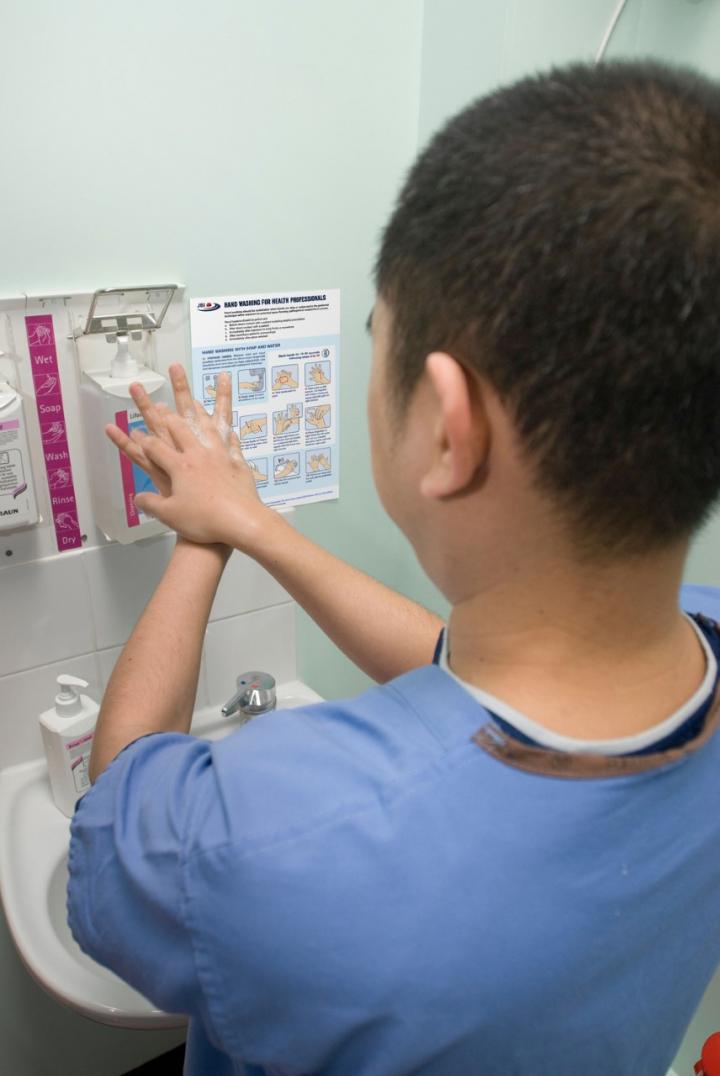
Credit: JBI, Faculty of Health and Medical Sciences, the University of Adelaide
New recommendations for best practice for infection prevention and control in healthcare settings, to help stop the spread of COVID-19, have been developed by the University of Adelaide’s JBI, an international research organisation in the Faculty of Health and Medical Sciences.
The JBI COVID-19 Special Collection summarises current best evidence and provides detailed recommendations for methods of hand washing with soap and water, hand rubbing with alcohol solution and when and how to wear personal protective equipment.
“Getting the fundamentals right is critical, we have focused on practical knowledge needs, the frontline of the fight against COVID-19,” says Professor Zoe Jordan Executive Director of JBI.
“JBI has collated, scrutinised and synthesised the best available research from universities and hospitals across the globe to develop these updates,” Zoe says.
“The need for quick access to clear, unambiguous recommended practice based upon high quality evidence at the point of care is paramount. These resources support clinicians in ensuring their infection prevention and control practices are evidence-based and up-to-date.
“For example, many people do not know that alcohol hand rub works best if allowed to dry on your hands, or what the evidence says about wearing rings or jewellery while washing your hands before and after patient care,” she says.
“Hand hygiene is the global standard for preventing transmission of infection, with 20-40% of healthcare-associated infections due to cross infection from hands of healthcare workers, but most do not have access to the evidence on when to use soap and water or alcohol hand rub, leading to an over-reliance on alcohol hand rub,” says Zoe.
“With that in mind, JBI has taken great care to bring together this collection of current, high quality, reliable information we hope will assist in stopping the spread of COVID-19 and other deadly infections,” she says.
The updated resources are available for free download from JBI’s website, and include recommended practices and posters illustrating best practice in handwashing techniques for infection control and prevention, evidence-based summaries on topics such as the wearing of personal protection equipment, as well as the recommended practice for basic hand hygiene.
These resources will be disseminated to health professionals locally and globally via JBI’s commercial partner Wolters Kluwer Health, as well as its 75 collaborating healthcare and university partners in 36 countries, this includes SA Health.
###
JBI is a world-leading team of researchers whose work ensures that evidence-based knowledge reaches the people who need it most. JBI fosters long-term, sustainable change in health practices by training healthcare professionals to deliver evidence-based healthcare and providing the best available evidence to inform clinical decision making.
More information:
https:/
Media Contact
Kelly Brown
[email protected]
Original Source
https:/




